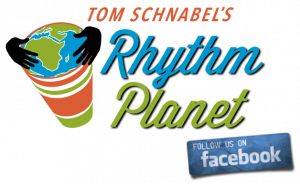 This Friday (5/23/14) at Occidental College’s Herrick Chapel, LA’s Music Circle hosted their final concert of their 2013-2014 season with the Gundecha Brothers. The Music Circle was founded in 1966 by Ravi Shankar and the late Harihar Rao. They present world class concerts of Indian classical music. The Gundecha Brothers (Umakant and Ramakant) are among the most celebrated of dhrupad vocalists today, recognized for their vocal range and praised for their masterful command of both pitch and ornamentation. They are accompanied by brother Akhilesh Gundecha on pakhavaj. Click here for tickets and info.
This Friday (5/23/14) at Occidental College’s Herrick Chapel, LA’s Music Circle hosted their final concert of their 2013-2014 season with the Gundecha Brothers. The Music Circle was founded in 1966 by Ravi Shankar and the late Harihar Rao. They present world class concerts of Indian classical music. The Gundecha Brothers (Umakant and Ramakant) are among the most celebrated of dhrupad vocalists today, recognized for their vocal range and praised for their masterful command of both pitch and ornamentation. They are accompanied by brother Akhilesh Gundecha on pakhavaj. Click here for tickets and info.
I have attended many Music Circle concerts of Indian music over the past 30 years at Occidental College. People sit on the floor and really take in the music. It is an authentic experience. The evening usually ends with some delicious home-cooked Indian food.
Dhrupad is considered the most ancient style of Indian vocal music. It’s very deep and entrancing to listen to. The origins of dhrupad as deeply spiritual, devotional music can be traced back to the fifteenth century. Dhrupad (pronounced droo-pod) is performed by either a solo vocalist or a small group singing in unison accompanied by tanpura(s) to the beat of a pakhavaj (barrel-shaped, double-sided drum descendent of the mridang). With strong emphasis given to precision of pitch, vocalists explore the melodic, rhythmic and lyrical passages of a raga within a sequenced, improvisational framework.
The Hindi word ‘dhrupad’ is derived from the Sanskrit word ‘dhruvapada.’ According to Hindustani mythology, young Prince Dhruv (then five years-old) was rejected by King Uttānappāda in favor of his stepbrother. To redeem himself, he was instructed to set off on a lonely journey into the forest, where he sat in meditation without food or water for six months in order to gain Lord Vishnu’s blessing. So impressed was Vishnu by the boy prince’s steadfast determination and lack of personal desire that he granted the boy dhruvapada, the state of becoming a celestial body. In Sanskrit, the word dhruva refers to the North Star; and pada meaning poetry.
Here is a recording of a Gundecha Brothers piece. Click here for more info on their upcoming Friday performance.

